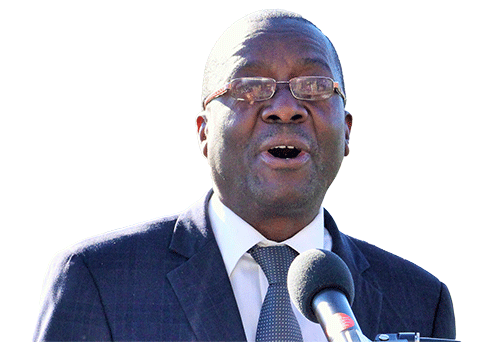Urban and rural development minister Erastus Uutoni has dismissed assertions by the Landless People’s Movement (LPM) that government has been deploying budgetary tactics to disadvantage local authorities south of the notorious veterinary cordon fence.
Utoni was responding to LPM’s second-in-command Henny Seibeb recently.
It is Seibeb’s fervent position that there is a “consistent reduction in the capital projects’ budget for local authorities south of the red line”, a position passionately disputed by the minister, under whose auspices local authorities resort.
“Could you explain the allocation strategy that appears to promote inequality, poverty and unemployment by dividing and ruling when distributing budgets for certain municipalities?” Seibeb asked him recently in parliament. Responding in the National Assembly, Uutoni told Seibeb that his claims were unfounded.
“This statement and question are unfounded, and there’s no divide and rule at play.
Projects [are] allocated funds based on the various stages and cash flow requirements when funds permit,” he said.
Expanding further, the ruling party
politician said: “It is not accurate that the Ministry of Urban and Rural Development and/or myself continue to cut the budgets of local authorities south of the red line. If any budget cut is to be implemented, it should be done for all local authorities in the country, irrespective of their location. One example is that Tsumeb is south of the red line, and due to the emergency and the crisis of water contamination, Tsumeb was allocated about N$20 million… projects at various stages of completion, execution and cash flow requirements will be allocated funds differently because the allocation is project-based and not locality-based.”
Ethnic cleansing
Seibeb further wanted to know if there are plans to submit a revised budget to address what he termed “underfunding of local authorities south of the red line, which is indicative of early warning signs of ethnic cleansing”.
To this, Uutoni said there is no need for revision. This is because local authorities south of the red line received the bigger chunk of the national budget when juxtaposed against their northern counterparts.
“Local authorities south of the red line received a total of N$160.5 million out of a total of N$298 million, and that is equivalent to 53.9% and still counting if I include the funds dedicated to informal settlements’ upgrading, which the Keetmanshoop and Oranjemund local authorities are benefiting from to an amount totalling N$5.8 million and N$10 million, respectively,” the former Ongwediva mayor stated.
He continued: “Once the aforementioned amount is added to the total allocation to the local authorities south of the red line, it [increases to] N$176.3 million or 56.2% of [the] N$313.8 million available.”
Millions returned
What worries Uutoni, however, is that local authorities in the Erongo, Khomas, //Kharas and Hardap regions [south of the red line] returned a combined N$16.7 million to Treasury during the 2022/23 financial year. He attributed the return of the said millions to “poor performance”.
“I, therefore, urge those regions to perform before the mid-term budget review of the 2023/24 financial year to avoid budget cuts,” the minister warned. The mid-term budget was tabled in the National Assembly last week.
In the past, local authorities and regional councils attributed the return of millions to the state purse to cumbersome public tendering processes.
The delayed release of funds from the ministry, which leaves most local authorities and regional councils with limited time to implement their projects, has also been cited as a chief reason for returning monies to Treasury.
Earlier this year, New Era reported that Kunene – one of the poorest regions in the land – returned over N$50 million to the state wallet.
The regional leadership pinned the blame on serious communication challenges with its regional stakeholders, as most capital projects implemented by line ministries are
coordinated from Windhoek.
The region was allocated a total of N$197 million across 16 sectors in the development budget towards the implementation of capital projects for 2022/23. Out of that amount
received, some N$56 million was returned from all sectors.
These sectors include education, mines and energy, health and social services, labour, industrial relations, justice, urban and rural development; environment, forestry and tourism; works and transport; the National Planning Commission, information and communication technology; agriculture and
land reform; and water and home affairs.
– emumbuu@nepc.com.na



